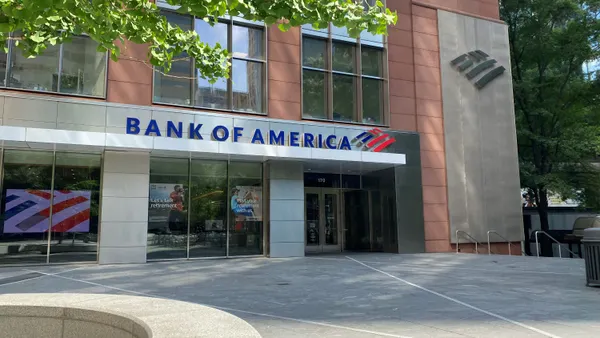Dive Brief:
- The Financial Crimes Enforcement Network (FinCEN) has assessed a $450,000 civil money penalty against Michael LaFontaine, former chief operational risk officer at U.S. Bank, for his failure to prevent violations of the Bank Secrecy Act during his tenure.
- Although U.S. Bank used automated transaction monitoring software to spot suspicious activity, FinCEN said, it capped the number of alerts generated, limiting the ability of law enforcement to target criminal activity. In addition, the bank failed to staff a compliance function with enough people to review alerts.
- "Mr. LaFontaine was warned by his subordinates and by regulators that capping the number of alerts was dangerous and ill-advised," said Kenneth Blanco, FinCEN director.
Dive Insight:
In February 2018, FinCEN, in coordination with the Office of the Comptroller of the Currency (OCC) and the Department of Justice, issued a $185 million civil money penalty against U.S. Bank for willfully violating Bank Secrecy Act requirements to implement and maintain an anti-money laundering program and to file suspicious activity reports in a timely manner.
According to FinCEN, two subordinates advised LaFontaine that the bank's automated system was inadequate because caps were set to limit the number of alerts. The OCC warned U.S. Bank on several occasions that using caps to limit monitoring based on the size of its staff and available resources could result in an enforcement action. FinCEN had taken previous public actions against banks for the same activity.
What's more, LaFontaine had received internal memos from staff claiming significant increases in suspicious activity, law enforcement inquiries, and closure recommendations created a situation where anti-money laundering staff "is stretched dangerously thin."
In addition, LaFontaine failed to take sufficient action when presented with significant anti-money laundering deficiencies and in the number of staff.
In response, U.S. Bank spokesman Greg Vadala told The Wall Street Journal the bank is "confident in the strength of the program we have in place today."
A spokesperson for LaFontaine also responded. "Mr. LaFontaine is proud of the work he did for U.S. Bank for more than a decade, spanning many important areas such as consumer compliance, privacy, vendor management, business continuity planning and operational risk management," Blois Olson emailed the Journal.
FinCEN said the problem persisted for at least five years. "His actions prevented the proper filing of many, many suspicious activity reports, which hindered law enforcement’s ability to fully combat crimes and protect people," said Blanco. "FinCEN encourages technological innovations to help fight money laundering, but technology must be used properly."
LaFontaine served as chief operational risk officer from October 2012 until June 2014.











